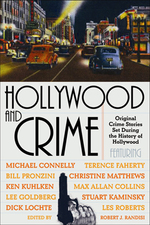USA Today reports that writer/producer J. Michael Straczynski is successfully self-publishing collections of his BABYLON 5 scripts through a P.O.D. company. The article suggests that this represents a turning point for P.O.D. self-publishing:
"There’s always been something of a stigma to print-on-demand, that it
was just a form of vanity publishing that could never produce financial
returns of significance," Straczynski says. "The B5 books are the first
to change this in a big way, showing that a writer can make as much or
more as with a major company."[…] the first seven
volumes of The Babylon 5 Scripts of J. Michael Straczynski appear to be
among the top-selling titles, with fans snapping up more than 18,000
books since October. Each volume — with seven scripts plus production
notes and new introductions — runs about 450 pages.At about $40 apiece ($30 in the first week of release), Straczynski
expects $1.5 million in total sales from the 14 planned volumes.A large chunk will go to CafePress, the company that prints and ships
each book.
I’m not surprised he’s having some success. But does it represent the future of P.O.D. self-publishing? No. But it is an example of one of the rare cases where P.O.D. self-publishing can pay off and I’ll tell you why.
Unlike 99.9% of the people attempting to self-publish, Straczynski essentially has a presold item. He’s selling scripts based on a long-running TV series that he wrote and created and that has been seen by millions of people all over the world. The show is continues to be seen in reruns and on DVD and has a huge cult following that’s primed to buy his book.
The same can’t be said of an average person trying to sell his novel as a self-published, P.O.D. title. His underlying property hasn’t already been exposed and promoted to millions of people. His book isn’t riding on the advertising and promotion of TV reruns and sales of DVD box sets. There isn’t a fan base already eager to buy the book.
Straczynksi has all that. Most people don’t.
There are many writer/producers who could do the same thing and probably enjoy similar success. There’s just one problem…one that the reporter for USA Today glossed over. In most cases, the writer-producers don’t have the right to self-publish their scripts from their TV shows and movies — those rights are retained by the studio. I’m assuming that Straczynski had to license the right to publish his scripts from Warner Brothers, which means the studio is getting a hefty fee and a percentage of any of his sales.
Unfortunately, there are aspiring authors who will be swayed by Straczynski’s unique experience and will get suckered by POD companies as a result.





